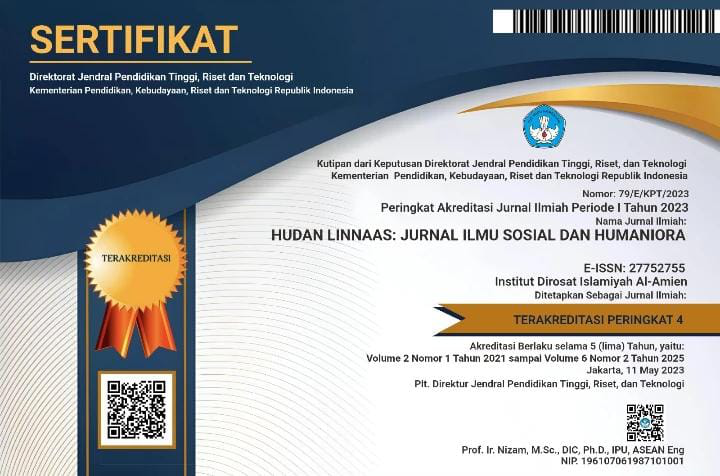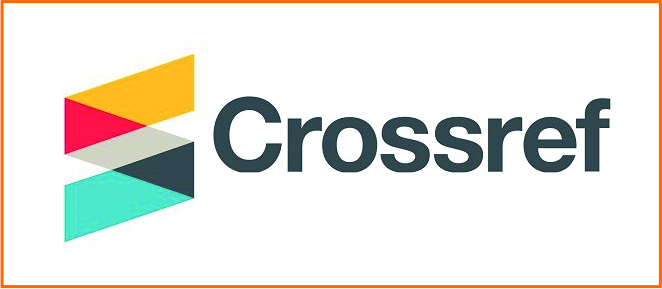ARTIFICIAL INTELEGENCE (AI) DAN POLITIK: ANALISIS TERHADAP PERAN DAN SIGNIFIKANSI AI DALAM KOMUNIKASI POLITIK 2024 DI INDONESIA
DOI:
https://doi.org/10.28944/hudanlinnaas.v6i1.1860Keywords:
Artificial Intelligence (AI), Political Communication, Political Campaign, 2024 electionAbstract
In this digital era, Artificial Intelligence (AI) has emerged as a profound and innovative tool across various aspects of human life—including entertainment, economy, education, and increasingly, the political sphere. The rapid development of AI in recent years has shown significant impact, including its involvement in political party decision-making processes. This study explores the political relevance of AI utilization within the realm of political communication, focusing on the analysis of its role and significance in the dynamics of Indonesia’s 2024 general election campaign. The aim is to examine AI’s potential in the political landscape by identifying the types of AI employed, both as supporting tools and in other assistive capacities. Through a qualitative approach, this research investigates the impact of AI on modernizing political campaign strategies, enhancing the efficiency of political communication, and influencing decision-making processes within political contexts. The methodology includes content analysis of campaign materials involving AI technologies and observation of political interactions mediated by artificial intelligence. Accordingly, this study seeks to provide an in-depth understanding of how the utilization of AI in political campaigns can shape political dynamics, public opinion, and democratic processes in Indonesia. The findings reveal that AI has been employed not only as a tool for generating visual content and political narratives but also as a strategic communication medium to shape voter perception and increase public engagement. Generative AI technologies, such as image generators, have demonstrated emotional appeal in political campaigns, as evidenced in the campaigns of Prabowo-Gibran and Andra-Dimyati. These findings indicate that AI contributes significantly to the transformation of modern political communication, influencing both public opinion and the democratic process in Indonesia.
References
Bradshaw, S., & Howard, P. N. (2019). The global disinformation order: 2019 global inventory of organized social media manipulation. Oxford Internet Institute.
Chesney, R., & Citron, D. K. (2019). Deepfakes and the new disinformation war: The coming age of post-truth geopolitics. Foreign Affairs, 98(1), 147-155.
Derry, R., & Wijaya, D. (2022). Artificial intelligence and political campaigns in Southeast Asia. Journal of Southeast Asian Studies, 53(1), 1-20.
Howard, P. N. (2006). New Media Campaigns and the Managed Citizen. Cambridge University Press.
Howard, P. N., & Kreiss, D. (2010). Political parties & voter privacy: Australia, Canada, the UK, and US in comparative perspective. In Privacy in the Modern Age: The Search for Solutions.
Kreiss, D. (2016). Prototype Politics: Technology-Intensive Campaigning and the Data of Democracy. Oxford University Press.
Norris, P. (2021). Digital Disruption: Democracy Challenged in the Information Age. Cambridge University Press.
Tucker, J. A., Guess, A., Barbera, P., Vaccari, C., Siegel, A., Sanovich, S., ... & Nyhan, B. (2018). Social media, political polarization, and political disinformation: A review of the scientific literature. Political Communication, 35(1), 79-99.
Tufekci, Z. (2014). Big questions for social media big data: Representativeness, validity and other methodological pitfalls. Proceedings of the Eighth International Conference on Weblogs and Social Media, 505-514.
Widiastuti, Rizqiyani Syifa. (2024) Transformasi Ideologi Politik: Dinamika Pengaruh Kecerdasan Buatan (AI) di Indonesia.OSF Preprints. DOI: https://doi.org/10.31219/osf.io/6thsz https://interaktif.tempo.co/proyek/kecerdasan-buatan-dalam-kampanye-politik/
Downloads
Additional Files
Published
Issue
Section
Citation Check
License
Authors who publish with this journal agree to the following terms:
- Authors retain copyright and grant the journal right of first publication with the work simultaneously licensed under a Creative Commons Attribution-NonCommercial-ShareAlike 4.0 International License that allows others to share the work with an acknowledgement of the work's authorship and initial publication in this journal.
- Authors are able to enter into separate, additional contractual arrangements for the non-exclusive distribution of the journal's published version of the work (e.g., post it to an institutional repository or publish it in a book), with an acknowledgement of its initial publication in this journal.
- Authors are permitted and encouraged to post their work online (e.g., in institutional repositories or on their website) prior to and during the submission process, as it can lead to productive exchanges, as well as earlier and greater citation of published work.









